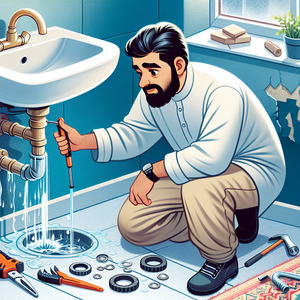Beyond the Clinic: Unique Benefits of Urgent Care Jobs for Physician Assistants

One of the most appealing aspects of working in urgent care is the flexibility it provides. Unlike traditional healthcare environments, which often require long shifts, on-call duties, or unpredictable hours, urgent care facilities typically operate on a more structured schedule. Many clinics offer set hours that encompass evenings and weekends, allowing PAs to manage their work-life balance more effectively. For example, a PA working in an urgent care center may have shifts from 3 PM to 11 PM, allowing them to spend their mornings with family or engage in personal projects. This flexibility is increasingly valuable in today's fast-paced world, enabling PAs to pursue hobbies, further their education, or simply enjoy downtime, ultimately contributing to higher job satisfaction and a more fulfilling lifestyle.
Diverse Patient Interactions
Urgent care clinics are characterized by a broad range of medical cases, offering PAs a unique opportunity to interact with diverse patient populations. From treating a young child with an ear infection to assisting an elderly patient with a sprained wrist, the varied cases encountered daily foster an engaging and dynamic work environment. This diversity not only keeps the work interesting but also promotes the development of a comprehensive skill set. Exposure to different patient demographics and medical issues enhances adaptability and clinical competence. For instance, a PA may also encounter patients with unique cultural backgrounds and varying health literacy, requiring tailored communication and treatment approaches. This variety is particularly appealing to those who thrive in dynamic environments and seek to continuously expand their medical knowledge.
Opportunities for Rapid Skill Development
The fast-paced nature of urgent care encourages quick thinking and decisive action, leading to accelerated skill development for PAs. In this environment, they frequently perform procedures such as suturing, splinting, and administering injections, often gaining proficiency much earlier in their careers compared to peers in more traditional settings. For example, a PA might perform minor surgical procedures, such as drainage of abscesses, or become adept at managing fractures and dislocations within their first year of practice. This hands-on experience not only boosts their confidence but also enhances their resumes, making them more competitive in the job market. The opportunity to cultivate such skills in a relatively short period is a significant advantage that can lead to greater professional opportunities down the line.
Career Advancement and Specializations
The growth of the urgent care industry has paved the way for numerous career advancement opportunities and specializations. As these facilities continue to expand, there is an increasing demand for PAs with specialized skills in areas such as sports medicine, pediatrics, or dermatology. Moreover, many urgent care centers offer pathways for PAs to transition into leadership roles or engage in quality improvement initiatives. Those interested in administrative aspects can also find opportunities to manage operations or participate in strategic planning. Such avenues for career growth can be immensely rewarding for PAs seeking to make a significant impact within their field and contribute to the evolution of urgent care practices.
The role of a Physician Assistant in urgent care extends far beyond providing immediate medical attention; it encompasses a range of unique benefits that can greatly enhance both professional and personal lives. Flexible scheduling, diverse patient interactions, rapid skill development, and opportunities for advancement create a fulfilling career path for PAs. As the healthcare landscape continues to evolve, those who choose to work in urgent care find themselves at the forefront of patient care, equipped with the skills and experiences necessary to thrive in this dynamic field. For aspiring PAs, the urgent care environment presents an enticing opportunity to make a meaningful difference while enjoying a balanced and satisfying lifestyle.
Urgent Care Physician Assistant (PA)
Urgent care centers, community health clinics, and hospitals with urgent care departments
Core Responsibilities
Evaluate and treat a wide range of urgent medical conditions, from minor injuries to acute illnesses.
Perform diagnostic tests, interpret results, and develop treatment plans.
Collaborate with physicians and other healthcare professionals to ensure comprehensive patient care.
Required Skills
Proficiency in performing minor surgical procedures, such as suturing and wound care.
Strong communication skills to effectively interact with a diverse patient population.
Ability to work in a fast-paced environment and make quick clinical decisions.
Pediatric Urgent Care PA
Pediatric urgent care clinics, children's hospitals, and family practice centers
Core Responsibilities
Assess and manage acute pediatric conditions, including respiratory infections, fractures, and allergic reactions.
Educate parents and caregivers on treatment plans and preventive care measures.
Coordinate care with pediatric specialists when necessary.
Required Skills
In-depth knowledge of pediatric medicine and growth and development.
Experience with child-friendly communication techniques and a compassionate approach.
Certification in Pediatric Advanced Life Support (PALS) is often required.
Sports Medicine Physician Assistant
Sports medicine clinics, athletic training facilities, and professional sports teams
Core Responsibilities
Provide immediate care for sports-related injuries and develop rehabilitation plans.
Assist in performing diagnostic procedures such as MRIs and X-rays for injury assessment.
Collaborate with athletic trainers and physical therapists for comprehensive patient management.
Required Skills
Strong understanding of musculoskeletal anatomy and injury mechanisms.
Ability to perform joint injections and other minor procedures relevant to sports injuries.
Interest in sports and exercise medicine, as well as certifications in related areas (e.g., CPR, First Aid).
Dermatology Physician Assistant
Dermatology clinics, cosmetic surgery centers, and hospitals with dermatology departments
Core Responsibilities
Diagnose and treat a variety of skin conditions, including acne, eczema, and skin cancers.
Perform skin examinations, biopsies, and minor surgical procedures.
Educate patients on skincare regimens and preventive measures for skin health.
Required Skills
Specialized training in dermatology and familiarity with dermatological procedures.
Strong visual diagnostic skills and attention to detail for skin assessments.
Certification in dermatology-specific techniques (e.g., Mohs surgery) may be beneficial.
Urgent Care Center Administrator
Urgent care chains, multi-specialty medical groups, and healthcare organizations
Core Responsibilities
Oversee daily operations of the urgent care facility, ensuring efficient workflow and high-quality patient care.
Manage staff, including hiring, training, and performance evaluations.
Develop and implement policies and procedures to enhance patient safety and satisfaction.
Required Skills
Strong leadership and organizational skills, with experience in healthcare administration.
Knowledge of healthcare regulations, billing practices, and quality improvement initiatives.
Ability to analyze financial data and manage budgets effectively.


